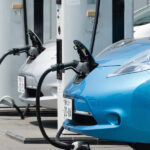Choosing a suitable water heater ensures your family has enough hot water while saving energy and money. Here’s a simple guide to help you select the best option for your home. Know more about get a new hot water tank
Types of Water Heaters
Before buying, it’s essential to understand the available options:
- Conventional Storage Heaters: These come with a tank that stores hot water. They are reliable for daily use but may struggle during high-demand situations, like when hosting guests.
- Tankless Water Heaters: Heat water only when needed, without a storage tank, ensuring continuous hot water supply if properly sized.
- Heat Pump Heaters: These use heat from the environment to warm water, offering high efficiency and significant cost savings.
- Solar Heaters: Use sunlight to heat water, reducing energy bills and environmental impact.
- Tankless Coil/Indirect Heaters: Depend on a home’s heating system to heat water, often seen in colder climates.
Key Factors for Choosing a Water Heater
When selecting a water heater, keep the following in mind:
- Fuel Type and Availability: The energy source determines operational costs and efficiency. Common options include electricity, natural gas, propane, oil, geothermal, and solar energy. Ensure your chosen fuel type is readily available and cost-effective.
- Size: An appropriately sized water heater ensures sufficient hot water while optimizing energy use. Discuss your household’s needs with an expert to choose the correct size.
- Energy Efficiency: Opt for energy-efficient models to lower utility bills. Look for labels like Energy Star to identify efficient appliances.
- Costs: Evaluate the initial purchase price alongside the long-term expenses for operation.
- Energy-efficient models often have higher initial costs but save money over time.
Fuel Options and Costs
Fuel availability varies by region, so it’s important to explore your options:
- Electricity: Versatile and widely available, suitable for most heater types.
- Natural Gas and Propane: Common and cost-effective options, especially for conventional and tankless systems.
- Solar Energy: Ideal in sunny regions, offering eco-friendly water heating.
- Oil and Geothermal: Limited to specific setups, such as homes with geothermal pumps or oil-based systems.
If you have multiple fuel choices, compare costs to determine the most economical option. However, switching fuel types may require additional expenses, like installing new wiring or gas lines.
Energy-Saving Tips
To reduce water heating costs, consider:
- Washing clothes in cold water.
- Installing energy-efficient fixtures.
- Insulating water heaters and pipes.
- Exploring advanced systems like drain-water heat recovery for added savings.
Conclusion
The right water heater depends on your household’s needs, budget, and energy source. By choosing an efficient model, you can enjoy consistent hot water while lowering energy bills. Regular maintenance and professional advice can further enhance performance and ensure long-term savings. Consult a professional to assess your home’s requirements and make the best decision.
;
;










